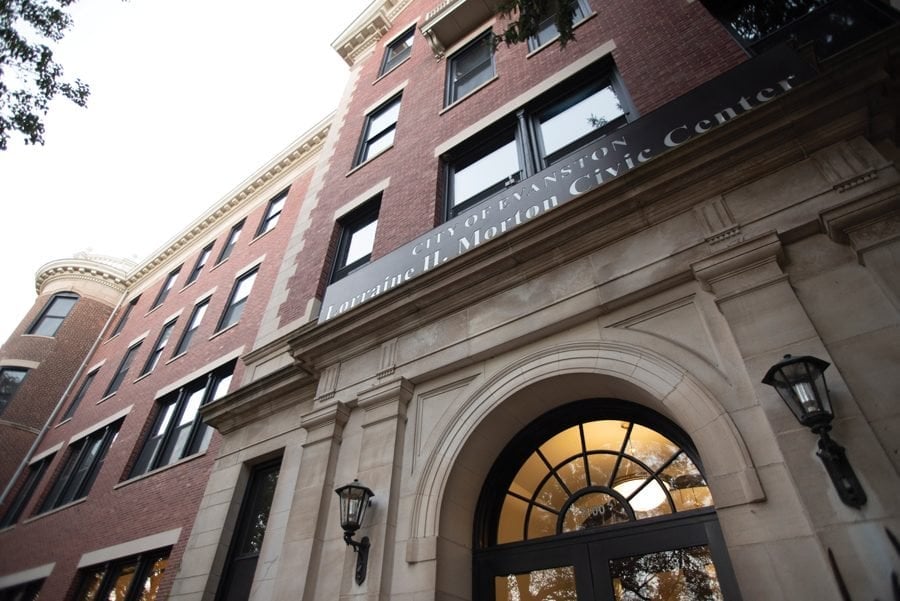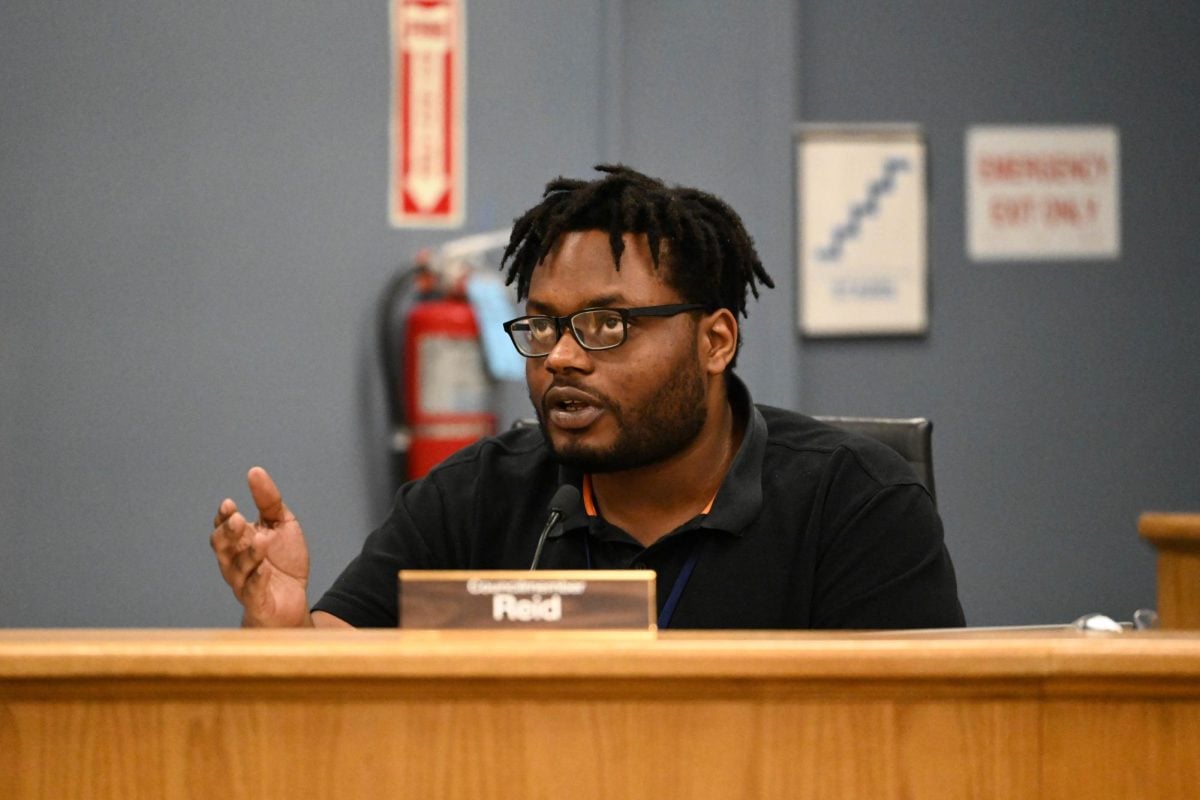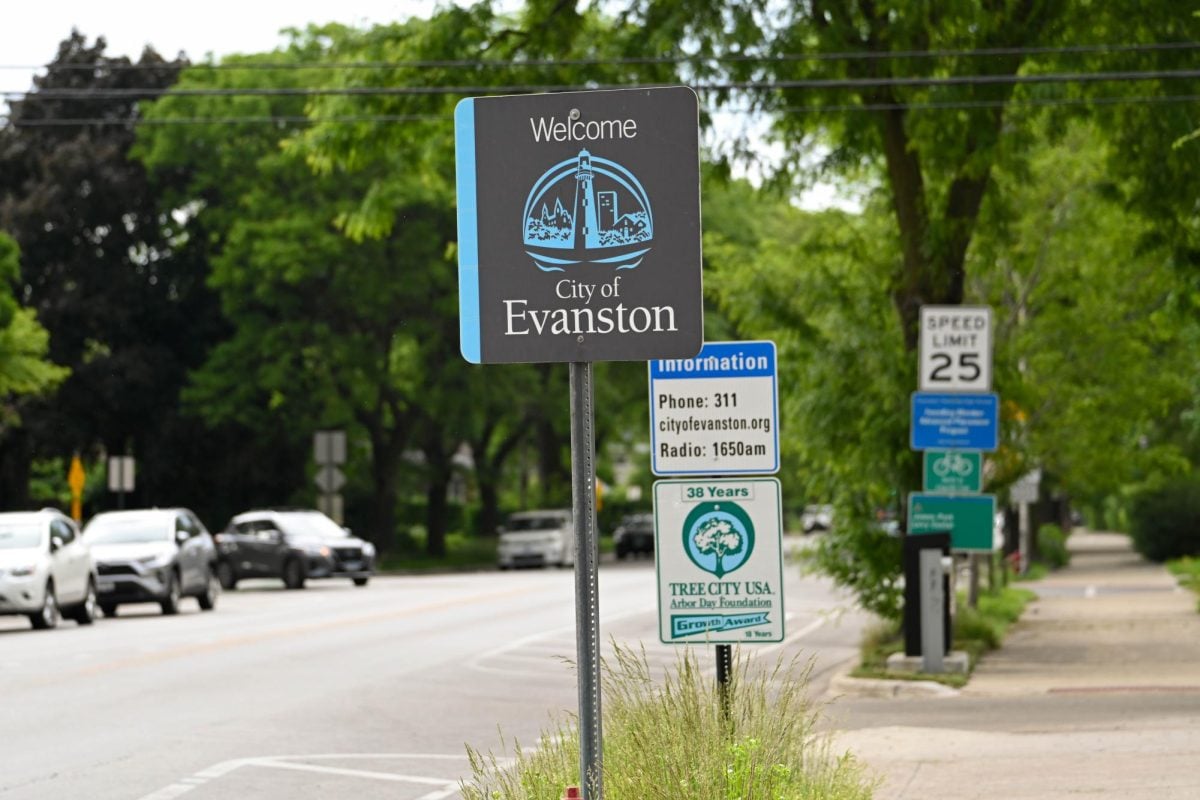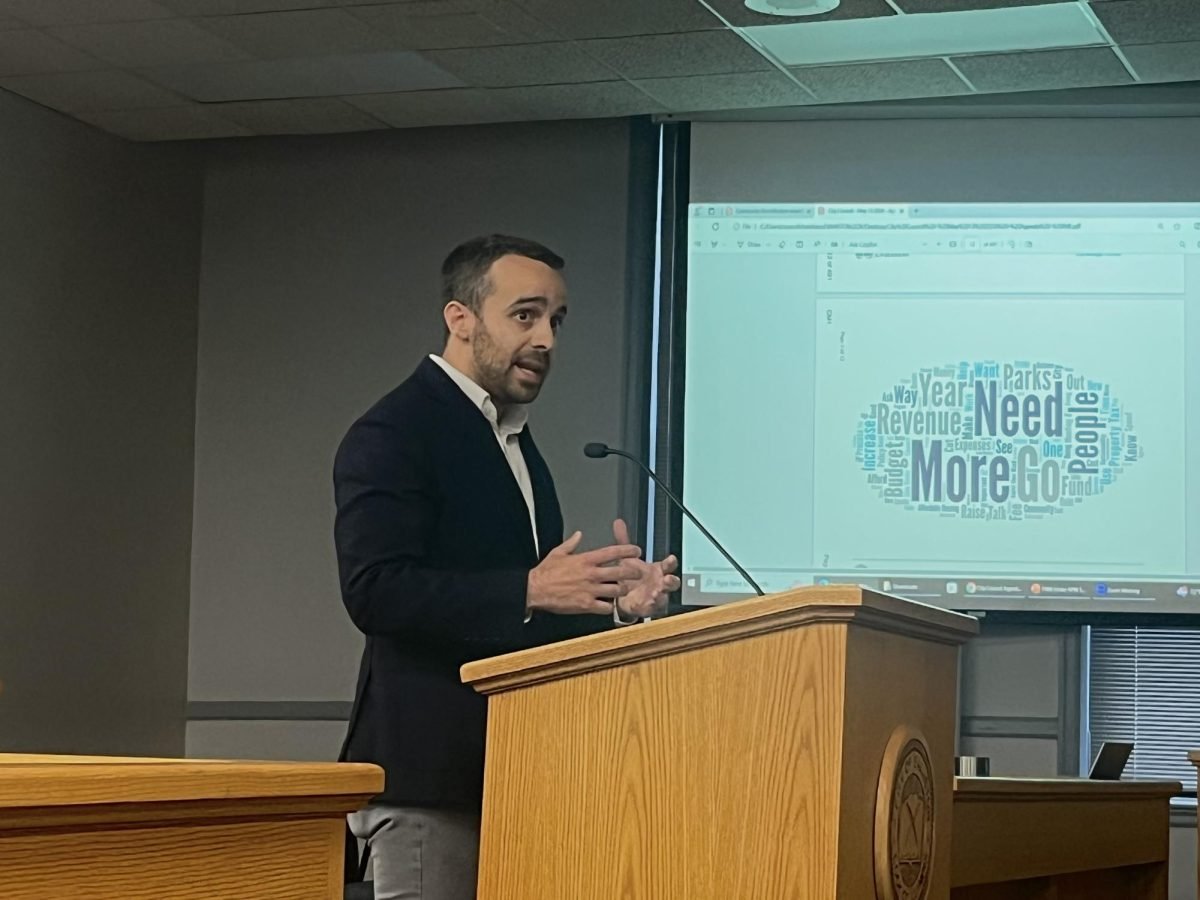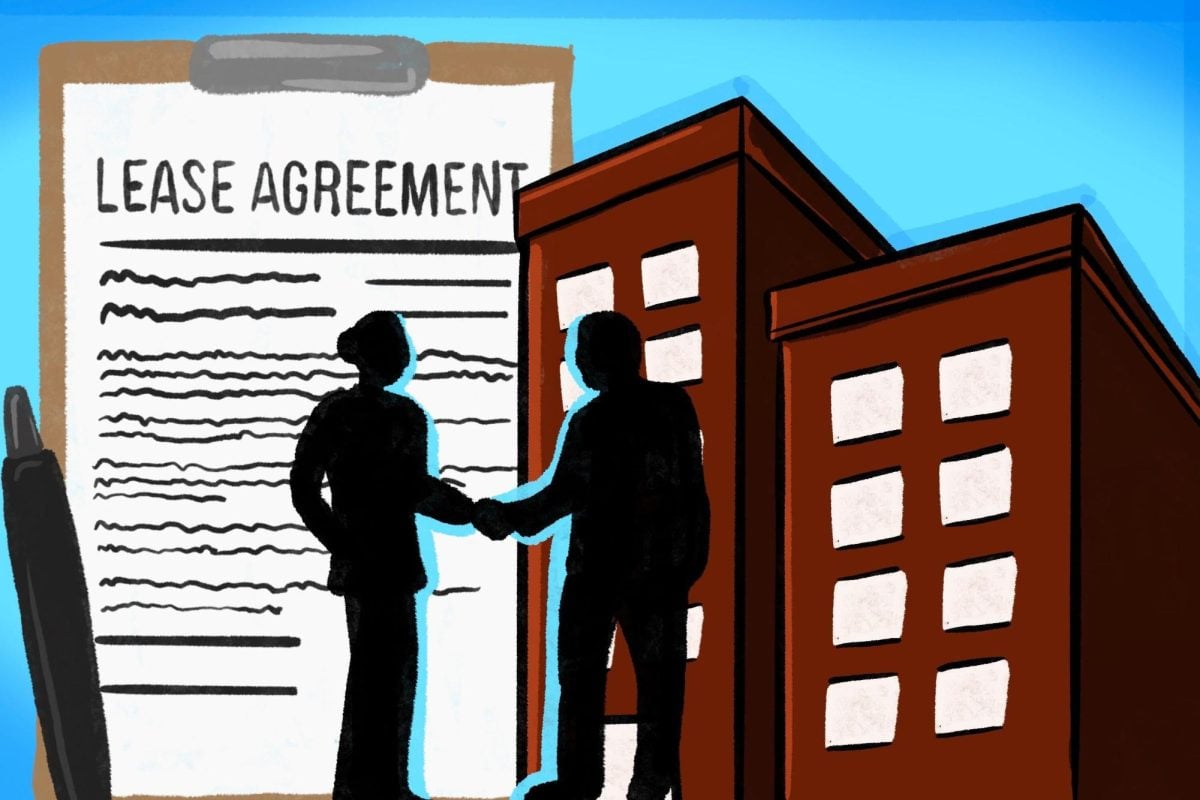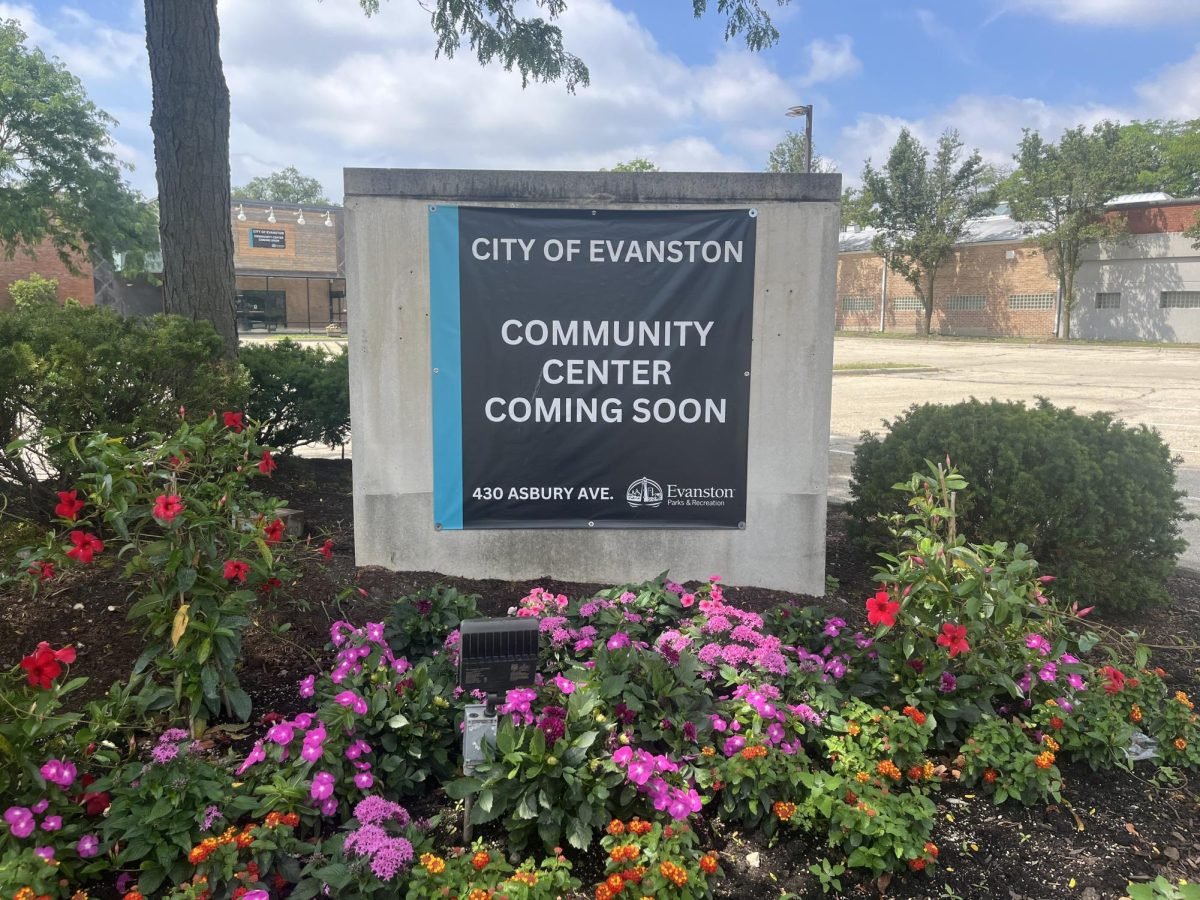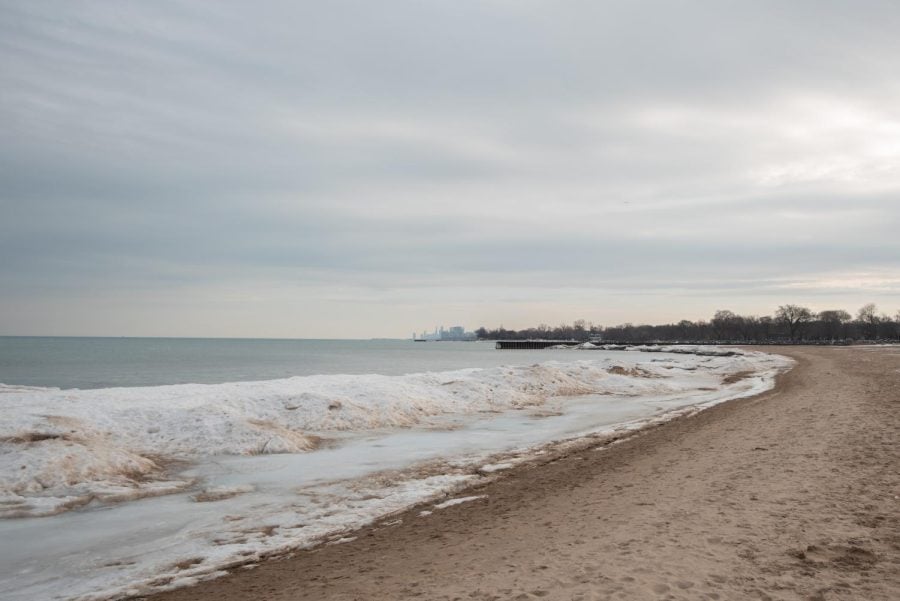City Council voted against pausing Evanston’s gas- and propane-powered leaf blower ban at its Monday night meeting. The proposal arose after many local landscaping businesses said they have faced challenges transitioning to electric blowers.
The resolution, recommended by the Human Services Committee at its March 4 meeting, would have paused the gas blower ban between March 18 and April 8. The three-week moratorium would give city staff and councilmembers time to implement other solutions to ease the transition, Ald. Juan Geracaris (9th) said.
“It’s going to take work,” he said. “And it’s not going to get fixed in three weeks.”
Geracaris, along with Alds. Krissie Harris (2nd), Bobby Burns (5th) and Devon Reid (8th) voted for the pause, which failed 4-5.
Evanston’s gas leaf blower ban took effect in April 2023 — almost two years after City Council passed an ordinance initiating the change. Councilmembers implemented the ban after residents raised concerns over gas blowers’ carbon emissions, other pollutants and excess noise. Before 2021, gas leaf blowers were prohibited only during the summer.
Still, several local landscaping workers spoke at Monday’s meeting about the continuing financial burdens of transitioning to electric equipment — as well as their discomfort with “vigilante” gas blower ban enforcement. They said passers-by seeking to report noncompliance will circle working landscapers and take photos and videos of them using gas blowers.
“Evanston needs to do better and stop using our landscaping community as an example,” said 5th Ward resident Juan Rodriguez, whose family has run a landscaping company in Evanston since 2001.
Rodriguez said the electric leaf blowers available cannot handle the commercial work local landscaping companies routinely engage in.
Other public commenters mentioned how the gas blower ban rollout often left Hispanic and Latine landscapers — a substantial portion of small landscaping business workers in Evanston — out of the conversation. Landscaper Hector Hernandez, said the city failed to give notice of the original gas leaf blower ban in Spanish.
Several other speakers opposed pausing the gas blower ban, citing environmental and health concerns. City Council also received a petition signed by over 600 Evanston residents asking it to keep the ban in place.
Gas powered blowers are a “major culprit” of climate change and global warming, said 7th Ward resident Clifford Capone.
Capone urged the council to keep the ban in place and questioned why landscapers haven’t already transitioned to electric leaf blowers, given how long the partial and full bans on gas blowers have been in place.
“To all the landscape contractors doing business in Evanston who have been complying with the ban … that’s the wrong message to send,” Capone said. “You made the law — stick to it.”
While City Council elected to keep the gas blower ban in place, councilmembers also discussed ways to alleviate the policy’s burdens on small landscaping companies.
Though Ald. Jonathan Nieuwsma (4th) voted against the pause, he asked Evanston residents to “chill out” over noncompliance with the gas blower ban. He said leaf blower carbon emissions are a “drop in the bucket” compared to building and vehicle emissions.
“Please take a deep breath, put in some earplugs and don’t vent your ire on the laborers themselves — they’re just trying to earn a living,” he said.
Acknowledging that landscapers might need more funding to make the switch to electric blowers, Nieuwsma proposed a system where the city buys compliant landscaping tools wholesale and distributes them to landscapers at reduced prices.
Ald. Melissa Wynne (3rd) said she didn’t support pausing the ban because many of her ward’s residents enjoy quiet in the neighborhood. One solution might be to fine homeowners instead of contractors for using gas powered blowers, she said.
“Then, it will make people realize that we have this ban in place, and they’re going to have to spend more on their landscaping,” Wynne said.
Other councilmembers also suggested making sure existing exemptions to the gas blower ban — including for some city properties and road pavement projects — apply equally to city staff and private contractors. They also suggested improving grant funding distribution to local landscapers who are transitioning to electric.
The friction around the gas blower ban highlights the general need for the city to have more engagement with its Latine community, Geracaris said.
“We take climate action really seriously,” he said. “But we need to meet people where they are and have meaningful discussions about what the impact is.”
Email: [email protected]
Twitter: @william2tong
Related Stories:
— Potential pause to city’s gas and propane leaf blower ban stirs up controversy
— Evanston bans gas- and propane-powered leaf blowers
— City Council changes existing leaf blower usage restrictions











